CPR’s MISSION
Establish, maintain and operate a telecommunications infrastructure with diverse, innovative and resilient technology to provide emergency communications (voice, data and video) inside and outside the Caribbean, to a network of centers in critical sectors, to assist the disaster recovery process. These centers would be able to operate immediately, after a natural or man-made disaster. This network will serve as a backbone for the recovery and restoration of social, economic and governmental services. Systems for disaster preparedness, training, coordination, response and mitigation will be developed.

Resilient Emergency Communications in the Aftermath of Natural Disasters in the Caribbean
A non-for-profit, resilient, satellite-based emergency communications organization. This telecommunications network provides broadband connectivity in the American Caribbean. This emergency communications network has two approaches:
- Allowing telecommunications carriers to utilize a satellite teleport facility in Puerto Rico to provide this connectivity in time of crisis and when other options are disrupted, and
- Building an innovative, resilient, and rural broadband emergency network. This community-based system uses diverse technologies mainly focusing on existing local facilities-based satellite infrastructure. Satellite technology was critical in the restoration of Puerto Rico and should be part of any future preparedness plans for the American Caribbean.
One-Stop Community Digital Centers / Hubs

A Resilient telecommunications Solution for Emergency Communications using satellite technology. This solution will provide backup and business continuity in the aftermath of a natural or man-made disaster.
WHY A SATELLITE-BASED SOLUTION?

In addition to being more reliable, satellite broadband is also more affordable in an emergency. Satellite offers immediate accessibility to even the most remote areas and those areas with terrain that is not ideal for the terrestrial telecommunications industry...
CPR: A Resilient Communications Network

Investing in a resilient satellite backup is a marginal investment when compared to ongoing terrestrial repairs. CPR, through its facilities, will be able to provide connectivity for the major stakeholders in the aftermath of an emergency, saving time, money and lives.
IMPACT OF NATURAL DISASTERS IN KEY COMMUNICATIONS
Natural disasters are a constant threat affecting the Caribbean basin. Preparedness for hurricanes, earthquakes, floods and volcanic eruptions have been an important priority for both governments and private institutions.
read moreASPECTS OF THE CPR SATELLITE
NETWORK
The CPR network is being composed of members from strategically identified sectors that were essential in the wake of Hurricane María. This model is a much-needed emergency preparedness and communications initiative.
read moreCPR SATELLITE COMMUNICATIONS: COMMITTED TOWARDS THE FUTURE
CPR satellites provides broadband communications in areas where none exist, focusing on the reconstruction of telecommunications in Puerto Rico in the aftermath of Hurricanes Irma and Maria.
read moreWork in Puerto Rico
CPR have been working at the highest level of the Puerto Rican legislature. It has been invited to participate in hearings conducted by legislative Commissions addressing disaster preparedness. It has been invited to participate in hearings conducted by legislative Commissions addressing disaster preparedness. It is collaborating with the University of Puerto Rico and El Colegio de Mayaguez, and actively participated in IDEACOMUN, the most active organization in Puerto Rico, in partnership with El Centro de Estudios Puertorriqueños at Hunter College, to help community based organizations prepare to apply for federal funding.
Work in Washington
CPR created a coalition of some of the largest Puerto Rican organizations in Puerto Rico and in the Diaspora. The Federal Communications Commission established a 900 million PR disaster fund. This coalition asked the FCC to consider in its funding criteria,, to fund community -based organizations, municipalities and satellite technology. We were successful in FCC accepting satellite technology as one that could be funded, as a resilient technology, to assist in disasters in PR. This was a major victory for the CPR coalition.
Board of Directors
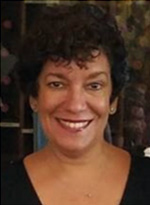
Dr. Marinés Aponte
Marinés Aponte is a Professor of Finance and Entrepreneurship at the Business College at the University of Puerto Rico (UPR), Rio Piedras Campus, one of the collaborator professors of the UPR i+c (Innovation and Commercialization Center) and team leader and principal investigator of the Global Entrepreneurship Monitor (GEM) Puerto Rico national research team. Aponte has worked as a consultant on entrepreneurship and community economic development for several government and non- profit organizations and has published several papers in the theme in local and international journals. She holds a PhD in Entrepreneurship and Small Business Management from Universidad Autónoma de Barcelona and a Master’s in Business Administration (MBA) from University of Puerto Rico.

Aarón Gamaliel Ramos
Aarón Gamaliel Ramos is currently Professor of Caribbean Studies at the Centre for Advanced Studies of Puerto Rico and the Caribbean in San Juan, Puerto Rico. He was Director of the Institute of Caribbean Studies at the University of Puerto Rico and Coordinator of the Research Network on Haiti and the French Caribbean in that institution. His research and publications have focused on the history, culture and politics of Puerto Rico and the Caribbean.
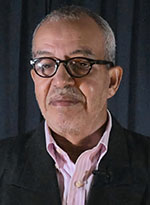
Federico Del Monte Garrido
He has master's degrees in architecture and urban planning. He was deputy director of the Department of Urbanism in the municipality of San Juan and Assistant Secretary in charge of the Secretary of Planning in the Department of Housing of Puerto Rico. He has been a professor at the Graduate School of Planning at the University of Puerto Rico. He was president of the Puerto Rican Planning Society from 2018 to 2020. He has been a professor at the Graduate School of Planning at the University of Puerto Rico, Rio Piedras Campus. He is currently a member of the Board of Directors of the Puerto Rican Planning Society and the College of Landscape Architects of Puerto Rico. Currently he works as a consultant on issues of urbanism, planning and Housing.
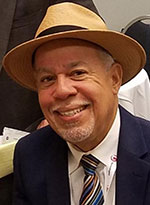
Jose Luis Rodriguez
Mr Rodriguez is the founder of the Hispanic Telecommunications Network (HITN), the first and still the only Spanish language PBS like network in the US and in Puerto Rico. By 2014 HITN reached a total 43 million homes, through the various cable and satellite systems nationwide. Over a 30 year period Mr. Rodriguez put together the largest portfolio of wireless spectrum that was valued at $550 million by a respected economist. The portfolio included 95 licenses of highly desirable spectrum, in over 80 markets in the US and a Puerto Rico.
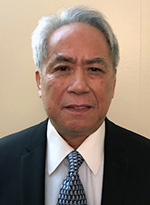
Tony Wong
After receiving his Master Degree in Broadcasting from Brooklyn College, Tony Wong worked 11 years for WNBC and NBC in New York in various managerial positions; including Sales Traffics and On-Air Operations. He then joined the Hispanic Telecommunications and Information Network (HITN) as General Manager. In 2001 Tony branched into radio broadcasting with the launching of the first full-time Chinese language radio station in New York City. Tony managed a group of radio stations on the East Coast for Multicultural Radio (“MRBI”), as well as launching SinoTV, a full time nation-wide Chinese language television network, with channels and stations in NYC and Los Angeles. Concurrently, Tony was President and CEO of Networks Asia, the sales arm for radio and television properties for MRBI. Tony Retired from MRBI in January 2017.
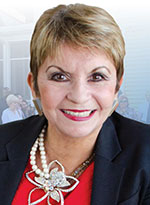
Hilda Rosario Escher
Rosario Escher is a member of the New York State Council on Women and Girls, the Regional Economic Development Council for the Finger Lakes Region, sits on the statewide board for Empire State Development, and is on the boards of Somos el Futuro, the Willow Domestic Violence Center, and the National Museum of Play. She is the former President & CEO of IBERO-American Action League, Past-Chair of Coordinated Care Services’ Board of Directors, and Past-President of the Rochester Psychiatric Center Board.

Ladan Alomar
Ladan Alomar is Executive Director of Centro Civico, Inc. a not-for-profit, community-based organization located in Amsterdam and Albany, New York. She has been an active resident of the Capital District area for the past thirty-six years.
Mrs. Alomar has a master’s degree in Educational Administration from the State University of New York at Albany. She has served as Director of Education at Stratford Business School and Student Advisor at Siena College.

John Dellaportas
John Dellaportas is a practicing trial lawyer in New York City. His practice focuses on commercial litigation, federal securities law, and international arbitration.
